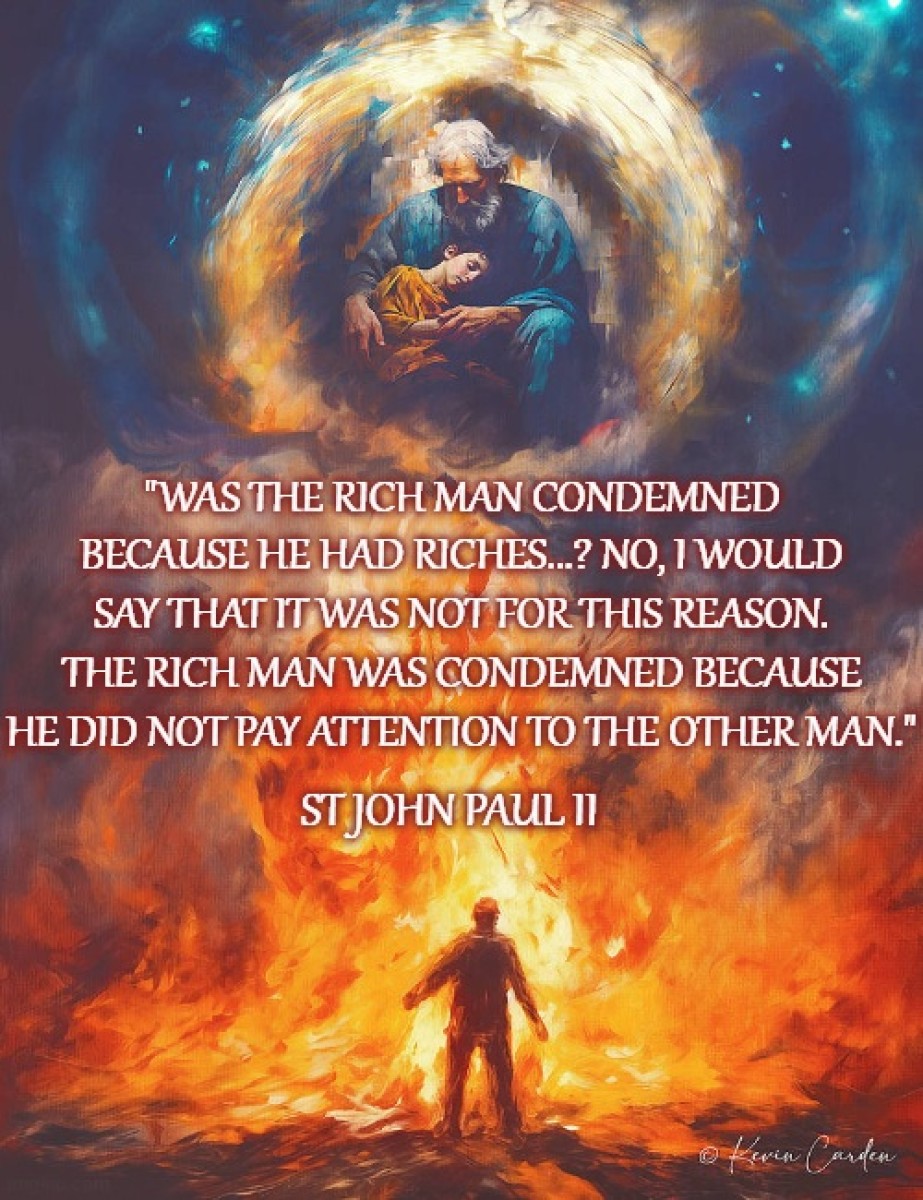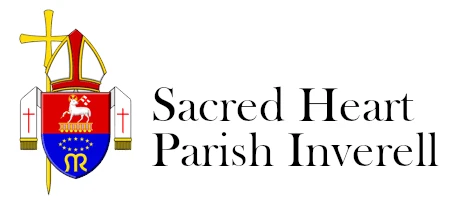26th Sunday in Ordinary Time (Year C) - 28 September 2025
28th September 2025

“Remember that the Christian life is one of action; not of speech and daydreams. Let there be few words and many deeds, and let them be done well.” - St Vincent Pallotti
An excerpt of the homily given by Pope John Paul II in New York, Tuesday, 2 October 1979 on today's Gospel reading:
"Once there was a rich man who dressed in purple and linen and feasted splendidly every day. At his gate lay a beggar named Lazarus who was covered with sores. Lazarus longed to eat the scraps that fell from the rich man's table" (Lk 16 :19 ff.).
Both the rich man and the beggar died and judgment was rendered on their conduct. And the Scripture tells us that Lazarus found consolation, but that the rich man found torment. Was the rich man condemned because he had riches, because he abounded in earthly possessions, because he "dressed in purple and linen and feasted splendidly every day?" No, I would say that it was not for this reason. The rich man was condemned because he did not pay attention to the other man. Because he failed to take notice of Lazarus, the person who sat at his door and who longed to eat the scraps from his table. Nowhere does Christ condemn the mere possession of earthly goods as such. Instead, he pronounces very harsh words against those who use their possessions in a selfish way, without paying attention to the needs of others. The Sermon on the Mount begins with the words: "Blessed are the poor in spirit". And at the end of the account of the Last Judgment as found in Saint Matthew's Gospel, Jesus speaks the words that we all know so well: "I was hungry and you gave me no food, I was thirsty and you gave me no drink. I was away from home and you gave me no welcome, naked and you gave me no clothing. I was ill and in prison and you did not come and comfort me" (Mt 25 :42-43).
The parable of the rich man and Lazarus must always be present in our memory; it must form our conscience. Christ demands openness to our brothers and sisters in need—openness from the rich, the affluent, the economically advanced; openness to the poor, the underdeveloped and the disadvantaged. Christ demands an openness that is more than benign attention, more than token actions or half-hearted efforts that leave the poor as destitute as before or even more so.
All of humanity must think of the parable of the rich man and the beggar. Humanity must translate it into contemporary terms, in terms of economy and politics, in terms of all human rights, in terms of relations between the "First", "Second" and "Third World". We cannot stand idly by when thousands of human beings are dying of hunger. Nor can we remain indifferent when the rights of the human spirit are trampled upon, when violence is done to the human conscience in matters of truth, religion, and cultural creativity.
We cannot stand idly by, enjoying our own riches and freedom, if, in any place, the Lazarus of the twentieth century stands at our doors. In the light of the parable of Christ, riches and freedom mean a special responsibility. Riches and freedom create a special obligation. And so, in the name of the solidarity that binds us all together in a common humanity, I again proclaim the dignity of every human person: the rich man and Lazarus are both human beings, both of them equally created in the image and likeness of God, both of them equally redeemed by Christ, at a great price, the price of "the precious blood of Christ" (1 Pt 1 :19).
Brothers and sisters in Christ, with deep conviction and affection I repeat to you the words that I addressed to the world when I took up my apostolic ministry in the service of all men and women: "Do not be afraid. Open wide the doors for Christ. To his saving power open the boundaries of states, economic and political systems, the vast fields of culture, civilisation and development. Do not be afraid. Christ knows what is in man. He alone knows it" (October 22, 1978) .
As I said to you at the beginning, Christ is our Justice and our Peace, and all our works of justice and peace draw from this source the irreplaceable energy and light for the great task before us. As we resolutely commit ourselves to the service of all the needs of individuals and of peoples—for Christ urges us to do so—we shall nevertheless remind ourselves that the Church's mission is not limited to this witness to social fruitfulness of the Gospel. Along this road that leads the Church to man, she does not offer, in the matter of justice and peace, only the earthly fruits of the Gospel ; she brings to man—to every human person—their very source; Jesus Christ himself, our Justice and our Peace.
Art Credit: The Rich Man and Lazarus by kevron2001 at DeviantArt https://www.deviantart.com/kevron2001/art/The-Rich-Man-and-Lazarus-990087999


